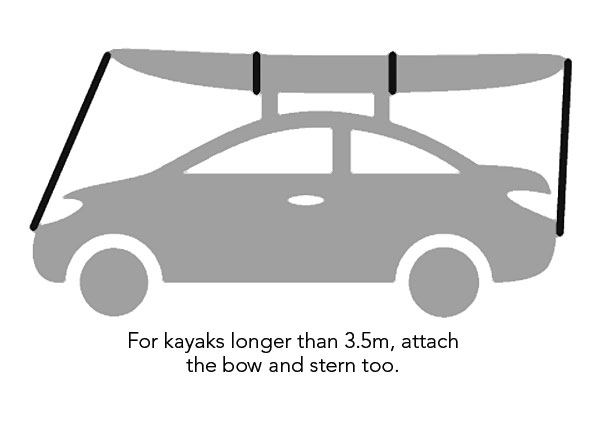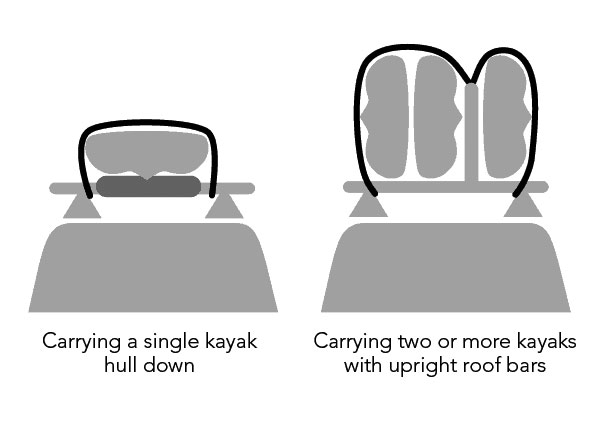Frequently asked questions
Find your nearest shop on this map islanderkayaks.com/find-a-shop
It’s best to store your kayak under cover and out of direct sunlight. To avoid distorting your hull keep the kayak flat and avoid points of pressure: do not hang it from the end handles; do not stack anything on top of it; and do not rest it across a sharp edge.


You’ll need a good roof rack to carry your kayak on your car. You can transport your kayaks flat, with the hull down, or on their side using upright bars attached to your roof rack. Fasten your kayak securely using cam straps. Roof rack pads on your roof bars will help to increase the area in contact with your boat, making it more secure and protecting your kayak. For longer kayaks, tether the front and back to your vehicle’s tow eyes to help stabilize the load and prevent lift. Avoid keeping your kayaks tied to your roof rack for prolonged periods as this can distort their shape.
Dents / distortion
When strapped tightly to a roof rack, or stored incorrectly, your boat can be bent out of shape. Leaving the boat uncompressed in the warm sun is often all it takes for the plastic to return to it’s original shape.
Gouges / holes
If your kayak has a hole in, or has been worn away, then arrange to take it back to your local dealer or contact us. Polyethylene is often repairable, depending on how the damage happened. For a warranty claim or repair, we'll need a photograph of the damage from you with a description of the incident caused the damage.
Parts + accessories
Seats, handles, and attachment points can usually be replaced very easily. Contact your local dealer for advice and replacement parts.
Hatches, backrests, D-rings and more. If you’d like to upgrade your kayak or replace worn out parts, you can buy Islander parts through your retailer.
Give it a rinse with fresh water after you’ve used in in salty water, wipe off any dirt with soapy water and a sponge. Don’t use chemical cleaning agents or corrosive substances to clean your kayak or its parts.
The serial number is usually located near the stern (rear) of the boat, just below the line where the deck and side wall meet. On most kayaks it is a number engraved in an indentation.
All the fittings and fixtures on your sit-on-top are attached with moulded-in brass inserts, so there are no holes in the kayak at these points. Water may get into your hull however through the hatches if they are not fully secure, or if you damage or put a hole in your kayak. Islander sit-on-top kayaks have a drain bung at the back so you can empty the hull of water. Undo the screw in bung and stand your kayak on end to empty it.






